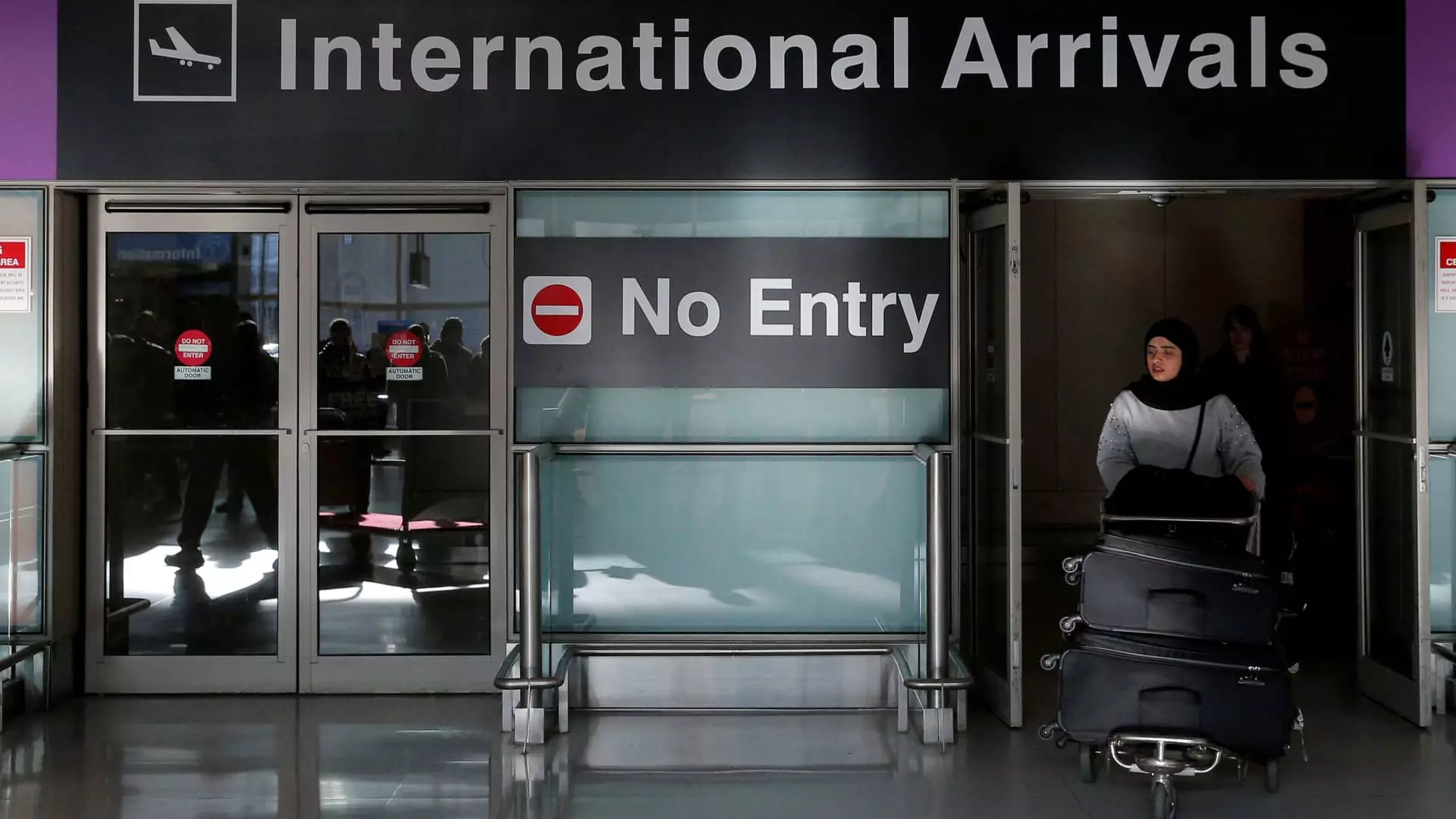In an era of increasing global interdependence, President Donald Trump’s recent travel ban unequivocally embodies a disconcerting fear-based governance. The decree, signed with an air of unpredictability, restricts travel for citizens from twelve predominantly African and Middle Eastern nations, weaving a narrative that paints these groups as threats rather than harbingers of hope and new beginnings. This decision is not merely a policy shift; it symbolizes an administration that prioritizes division over unity, leveraging stereotypes and broad-brushed narratives to justify a crackdown on immigration.
What does it say about the values we hold dear as a nation when citizens from places like Somalia and Eritrea are cast as inherently dangerous? One cannot ignore the deeper implications of such reasoning. When Trump’s administration alleges that nationals from these regions pose “terrorism-related” and “public-safety” risks, it pushes a perception that negates the very essence of the American dream: a sanctuary for the oppressed. In doing so, this ban fuels a cycle of resentment and misunderstanding, mirroring a historical pattern of scapegoating that has left indelible scars on our collective consciousness.
Targeting the Innocent
Among those directly affected are countless individuals like Elvanise Louis-Juste, whose family in Haiti is desperately seeking refuge from violence and instability. Their dreams of opportunity and safety are abruptly stifled by an administrative decree that fails to recognize the nuance of their plight. To dismiss them as mere statistics in a vague threat analysis is to fundamentally overlook their humanity. Such policies do not merely exclude, they dehumanize.
The perception that immigrants from these nations are less deserving of safety is palpable. Immigrants are often portrayed as burdens rather than contributors to society. The insistence on this narrative, as evidenced by Trump’s tie to a tragic event in Colorado, utilizes fear as a weapon, guilty until proven innocent in the eyes of a society that thrives on scapegoating. In reality, the socioeconomic contributions of immigrants remain vital to the fabric of American society—a point often lost amidst rhetoric aimed hastily at cultivating distrust.
Procedural Facade of Security
One cannot overlook the calculated design of this ban itself. It has been suggested that it is intentionally crafted to withstand legal scrutiny, a marked departure from the chaotic implementations that characterized earlier versions. This manipulation of language and strategy raises pressing ethical questions. By focusing exclusively on the visa application process, the administration skirts around the broader implications of its actions while presenting a façade of legitimate governance. However, beneath this veneer lies a broader tactic intended to consolidate power by inciting societal fear.
This ban reinforces a chilling precedent: national security as a justification for politically motivated decisions. Not only does it selectively enhance existing prejudices, but it also lays the groundwork for systemic discrimination against communities seeking to escape conflict and hardship. As immigration experts have pointed out, these countries’ so-called “deficiencies” in screening are themselves a symptom of their civil strife—highlighting the very reason their citizens seek asylum in the first place.
The Price of Ignoring Humanity
The response from humanitarian organizations has been swift and unequivocal. Advocates like Oxfam America have rightly articulated that divisive policies such as this simply foster animosity, uprooting the core principles of support and assistance that should define the United States’ engagement with the global community. To reshape immigration policies around fear and suspicion only perpetuates cycles of division and hostility within society.
International backlash, notably from Venezuela’s government, starkly illustrates the isolated posture of the current U.S. regime. It is ironic that a country like Venezuela, currently mired in political turmoil, finds itself stigmatized further, reflecting a concerted effort to marginalize entire communities based solely on their nationality—not their actions. The boundaries of our moral compass should extend beyond our borders, recognizing shared humanity over political expediency.
In essence, this travel ban is more than a mere statistical maneuver; it is an indictment of our society’s capacity for empathy. As we stand at this critical juncture, we must remember that the true strength of America lies in its diversity and its unyielding promise as a sanctuary for the downtrodden. Following the unfolding political landscape, it becomes imperative that we remain vigilant and unwavering in our advocacy for justice, compassion, and understanding amidst a backdrop of fear.

